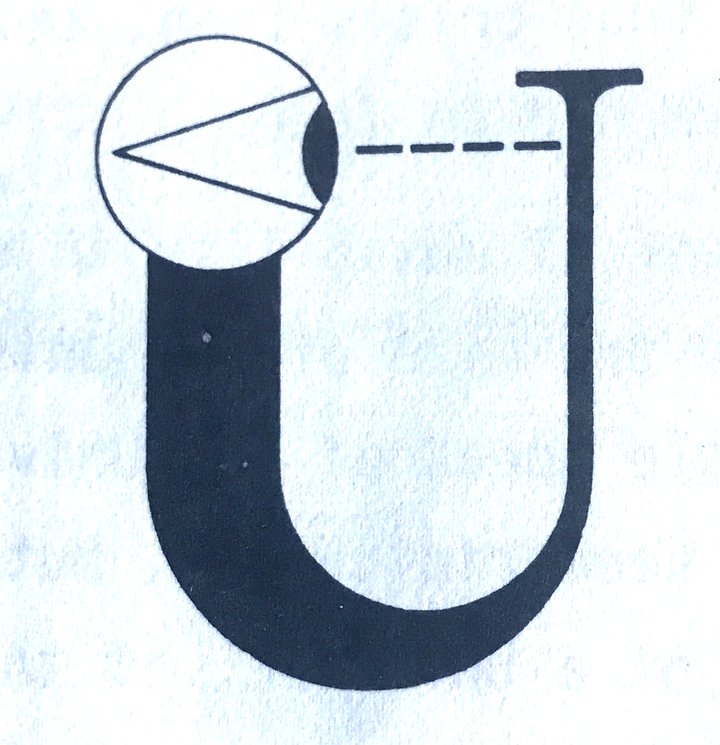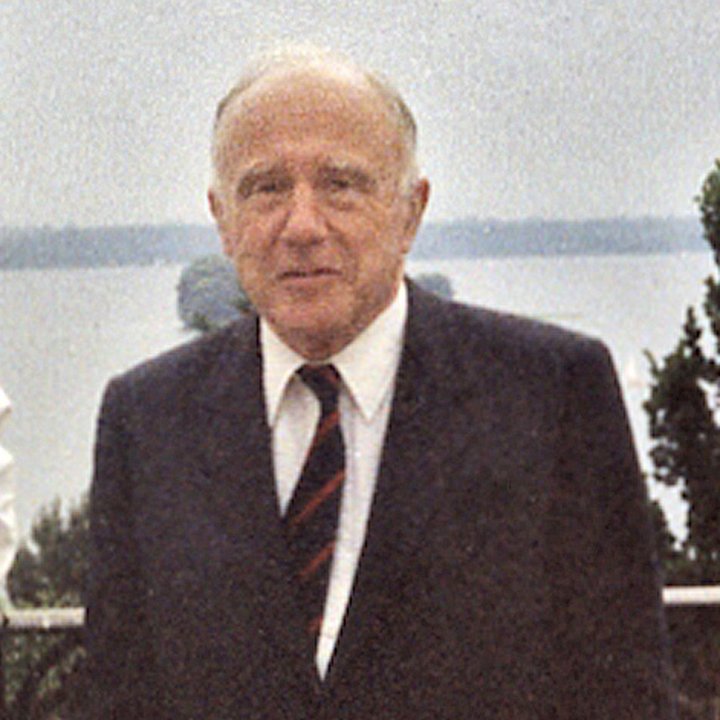“…how
is it that the Universe began? To me, that is the biggest question
ahead of us in the next five hundred years.”
— John Wheeler, interview, 1975
###
Without a story, there is no meaning.
Five hundred years from now, the “grand old man” of American physics, John Wheeler, quoted above, will probably only be known as the guy who coined the term “Black Hole.” And even that will be wrong — fellow cosmologist Robert Dicke was the first to use it. Wheeler was a terrific thinker, though, putting his capacious mind to everything from nuclear fission to what he called the “participatory universe,” that is, how we — conscious minds — affect the universe in some weird feedback loop. Wheeler was fond of quoting Dicke’s (presumably rhetorical) question: “What’s the good of a Universe, if there’s nobody around to look at it?” The tree falling in the forest and all that. Here’s Wheeler’s shorthand sketch, the U giving birth to the observer; while the observer (represented by the eye) gives meaning to the universe.

Wheeler’s “Observer-Universe-Observer…” feedback loop.
Back to his biggest, not unrelated, question, How did it all begin? Anyone who hasn’t spent at least a few seconds gobsmacked by this just doesn’t get it, in my not-so-humble opinion. Without something to get the whole shooting match off the ground, we wouldn’t be around to worry about it all, ask “what is consciousness,” or “what happens after death,” let alone being beset by all the immediate problems on our tiny blue speck in the void: endless war, ocean acidification, species extinction, forest fires and the eternal verities of GMOs and chemtrails.
What I like about Wheeler’s comment is that he puts the problem in a reasonable time frame, 500 years — perhaps inspired by the 500 years we’ve had to get used to being demoted from the center of it all to the far periphery, thank you Copernicus. Really, though? Is that enough time? We don’t even know where to begin or what constitutes a reasonable question. “Is it all a simulation?”, is that a good question? “Could we be one in an infinity of multiverses?”, does that make any sense? Does posing the existence of one or more gods — forever unknown and unknowable (arising from who or what?) — only add to the confusion? And what about Wheeler’s conviction that we, as conscious beings, are somehow involved in all this? (I suspect he’d have been amused by the latest half-witted, tenure-baiting effort to bring brains back into the center of things by the current revival of pan-psychism, whereby everything, down to the electrons, is a little bit conscious. The fact that it now goes by the posh name of “Integrated Information Theory” doesn’t make it any less of a canard. Google it.)
Seen in this light, Wheeler’s half a millennium to figure out Why-there’s-something-not-nothing? feels a tad optimistic. But that’s probably just the Friday morning caffeine talking. I’ll still take the Red Pill for instant enlightenment.

Physicist John Archibald Wheeler, 1911-2008, didn’t coin the term “Black Hole.” (But he did come up with “wormhole.) (Emielke, Creative Commons)
CLICK TO MANAGE